IT’S CARNIVAL TIME
17th February 2019 | Kisia Cove, Schellerlaufen Nassereith
Last modified on March 9th, 2022
PlanetSKI visits Nassereith in the Tirol for the Schellerlaufen event. It dates back to 1740 & is recognised by UNESCO.
Now it takes quite a lot to prise me away from the ski slopes.
When someone suggested I check out the carnival in Nassereith I pondered for a while.
But then this event only comes round once every three years, began back in the first half of the 18th century and there is more to the mountain life than just skiing.
However I wasn’t quite expecting the theatre and spectacle that unfolded before my eyes, and it turned out to be a good call.
A very good call.
So, what was it all about?
There were whoops and loud hollering of “Autupete Hö”, whip cracking, battling with bears, clanging bells, witches hexing and a lot more.
I arrived early on the brisk cold February morning at the small Tirolean village of Nassereith that is 60km north of Innsbruck.
And immediatley made a friend – that’s me on the left.
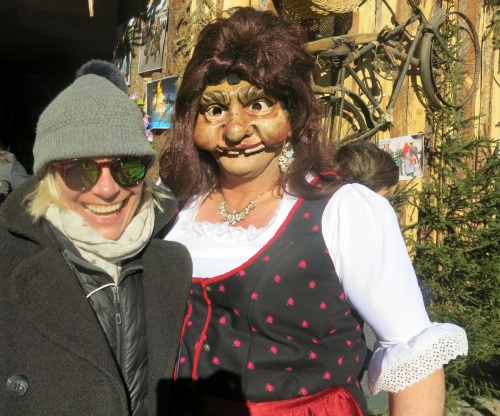
Tales from the Tirol
Around 500 villagers assembled in groups dressed to the nines in elaborate costumes wearing elaborate headgear and masks.
It was a bit spooky as everyone involved wore a mask.
Whether it was simply an enormous nose, an ugly gnarly wart ridden face, or a kinder slightly blander more angelic face, a black moorish mask or one with a more sinister expression.
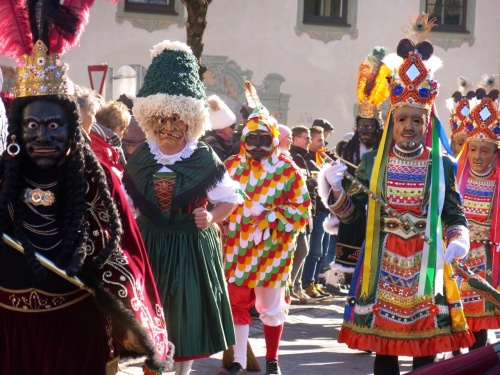
Schellerlaufen begins
In 2012 UNESCO gave the Nassereith Schellerlaufen World Cultural Heritage status.
The core theme of the carnival is based on the fight between the bear and the bear beater, where the bear symbolises Spring while the beater represents Winter.
And where, ultimately, Spring overcomes Winter.
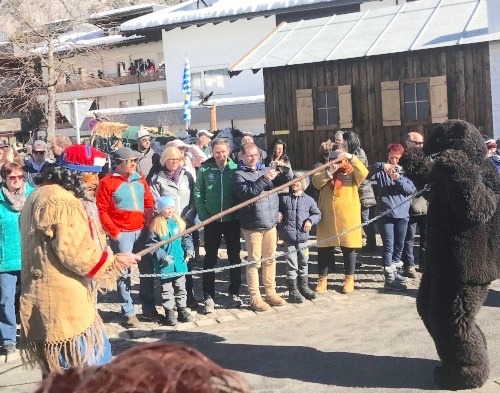
The battle between Winter and Spring
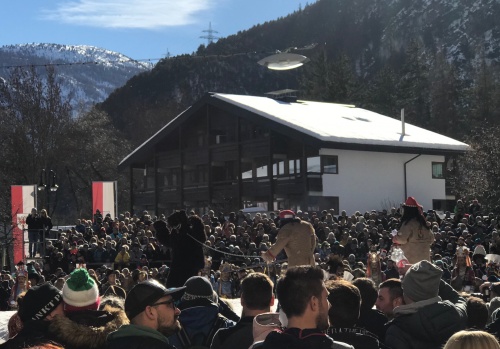
Spring overcomes Winter
The carnival unfolds with a stunning pageant of groups of “Kehrer, Roller, Scheller and Spritzer” – roughly translated, these are “Sweeper, Jumper, Ringer and Sprayer”.
These kingly looking characters are dressed in silk and symbolically go through the motions of sweeping the path, jumping, or ring bells.
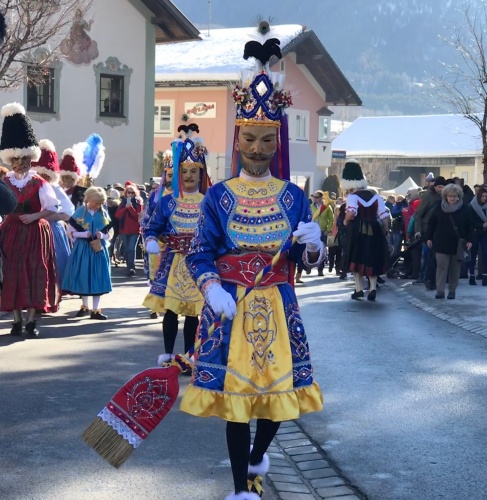
The Sweeper, followed by the Jumper & Ringer
Bell Ringer: The bell ringer only plays after the jumper performs and turns to bow to the ringer, who then jumps around wildly with his bells clanging loudly.
One of the bell ringers this year, Tobias Falkner, had to go into serious training to be able to skip and hop with the heavy bells hanging from his body.
The bells he was to carry weighed almost 30kg.
Sprayer: The character dressed as a girl prances around the group as she carries a small wooden bucket spraying water at the visitors with a brush.
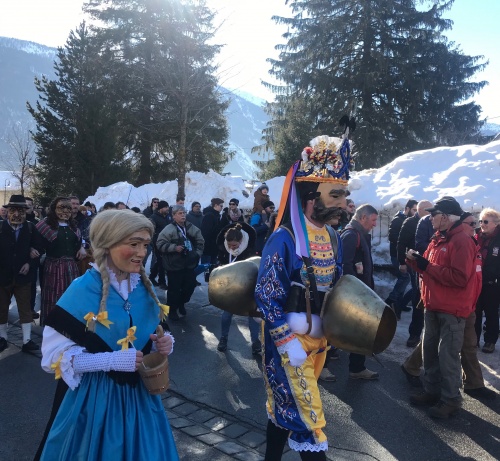
Sprayer with her bucket (left) and Ringer with heavy bells (right)
Bobble hatted women: The ugly women with head pieces resembling bobble hats also wore wart ridden masks.
They wore traditional pleated skirts that swirled when they twirled.
They carried heavy ornate bags filled with straw thumping visitors with them while shrieking “Autupete Hö” at the top of their voices.
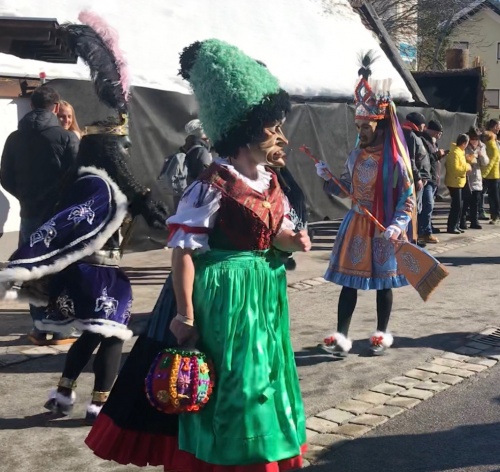
Shrieking women with heavy handbags
Moors: Feather capped angels and Moors with raven black hair wearing velvet capes dance around.
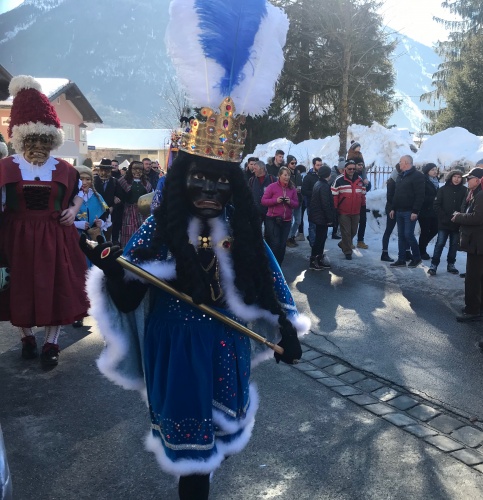
Dancing Moor
Raussler: One of the more traditional characters is the Raussler who wears spotted tops and bloomers carrying brooms and cloths dipped in soot.
Should they rub soot into your face it’s said to be a sign of good luck.
I felt even luckier that they didn’t rub soot in my face.
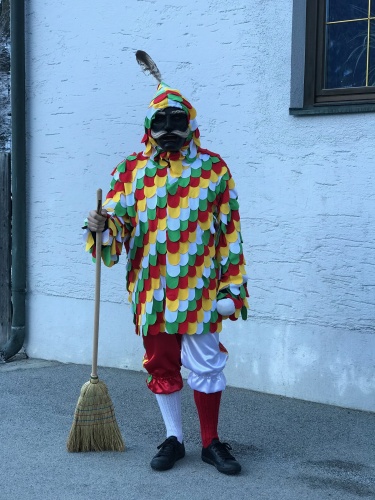
Raussler with broom
Whipping boys: The crack of whips sounded like firecrackers.
Pairs of young men stood in the street impressively cracking their whips at each other giving the impression they were fighting a duel.
We’re not sure of the symbolism of the whipping, but as soon as we find out we’ll update this piece.
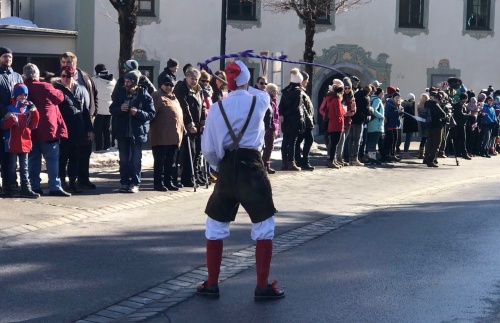
A cracking time
Witches and Hexes: The coven of 13 witches were probably my favourite as they whooped and hollered flying high on their broomsticks on their impressive float.
They were also involved in a lot of hexing.
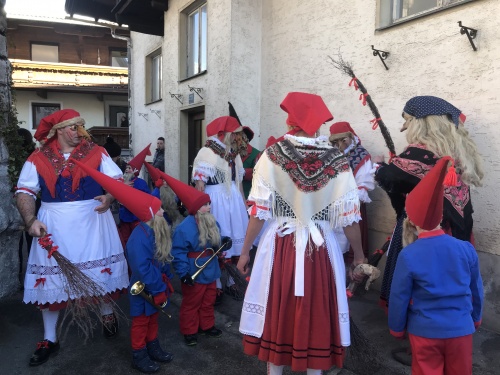
Witches galore
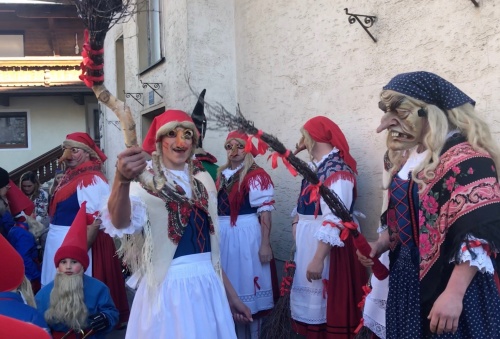
Witches galore
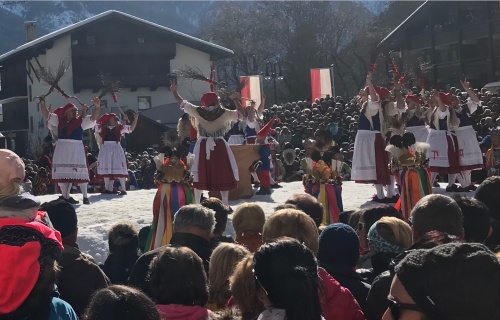
Witches
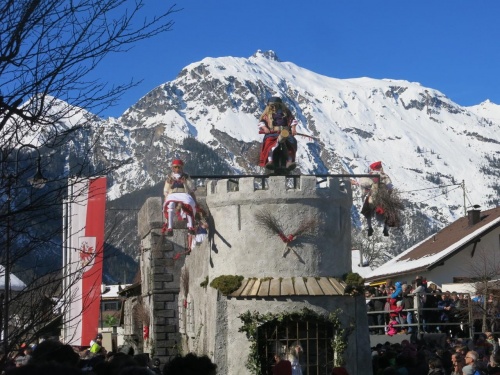
Witches in flight
Travellers: The Karner, or travelling folk, were in abundance, including scissor and knife sharpeners, broom trimmers, travelling salesemen.
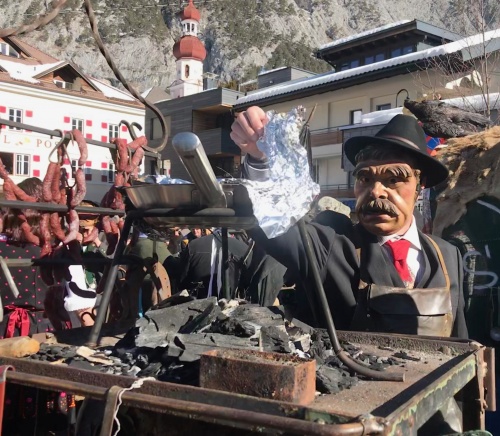
Fast Food carnival style
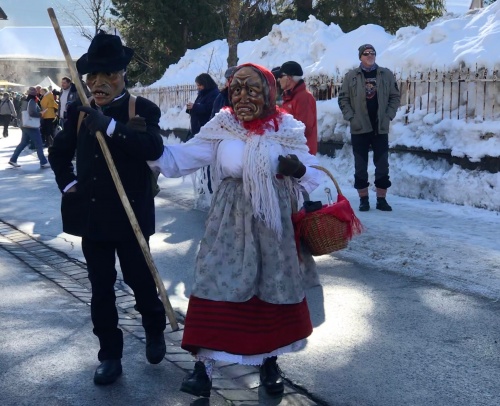
Man and woman
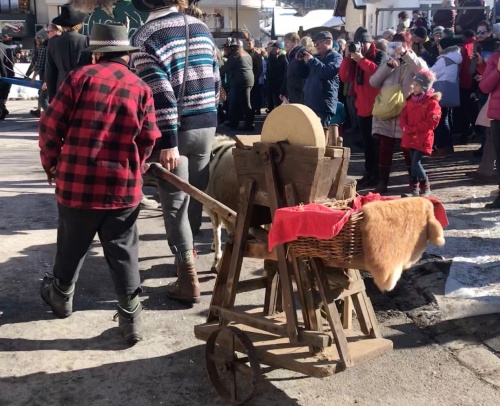
Farmers with livestock (yes there is a sheep in the photo!)
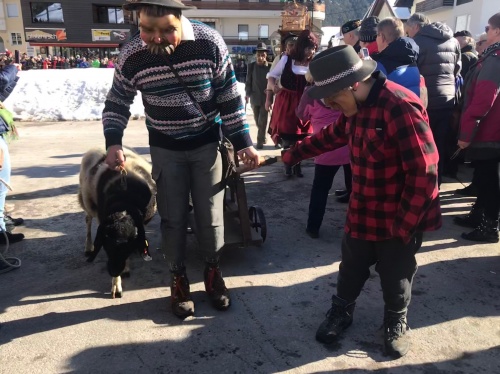
Farmers with livestock
Then there were the elaborate floats.
We thought we might spend an hour or so at the Nassereith Schellerlaufen and then head off for some afternoon skiing at one of the ski areas close-by.
But not a bit of it.
The carnival was so enthralling and immersive we were lost in the fun and mystery of the event, and it was probably around 4pm that we realised our afternoon skiing was gone.
We weren’t the only ones.
The event drew in huge crowds that stayed to party to the end.
Here’s a short clip of training prepping for the 2019 carnival, along with footage from previous years:
One odd thing though, tradition dictates that only men and boys can participate, and that includes all the female roles too.
We look forward to returning in three years time to the next Nassereith Schellerlaufen in 2022 and if you are in the area don’t ponder for a second.
Skiing can wait.
For the Spirit of the Mountains – PlanetSKI: Number One for ski news










